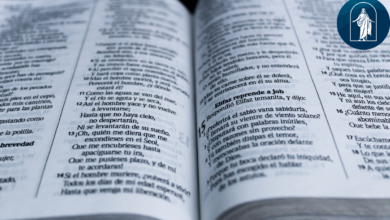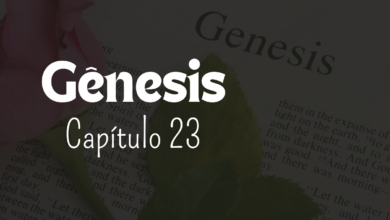Who were the sons of God in Genesis 6? Check it out in detail!
Who were the sons of God in Genesis 6? The book of Genesis, a fundamental part of the Bible, presents us with a series of ancient narratives that have intrigued readers over the centuries.
One of the most enigmatic passages is found in Genesis 6, where the “sons of God” are mentioned. This text sets out to investigate the meaning behind this expression and explore the questions it raises.
Read with us and find out Who were the sons of God in Genesis 6?, let's go!
Who were the sons of God in Genesis 6?
The passage from Genesis 6 mentions the “sons of God” who cohabited with the “daughters of men”. The interpretation of this excerpt is the subject of debate among scholars and theologians.
Some believe that the “sons of God” refer to spiritual beings, perhaps angels or divine beings, who interacted with humans, resulting in hybrid offspring.
Another interpretation suggests that the “sons of God” were simply pious people from the lineage of Seth, while the “daughters of men” were women descended from Cain, who were generally seen as less virtuous.
Regardless of the interpretation adopted, the passage emphasizes the increase in evil and corruption on Earth at that time, leading God to decide to send the Flood to purify humanity.
Common questions
1. What does the Bible say about human wickedness?
In Genesis 6, the Bible portrays human evil reaching alarming proportions. The text describes a time where corruption and violence became widespread.
People turned away from God's ways, delving into wickedness. This state of depravity led God to reconsider his creation.
He saw that human evil was out of control, and this saddened him deeply. In response, God decided to send the Flood, a global catastrophe designed to cleanse the Earth of evil.
The story of Genesis 6 serves as a powerful warning about the consequences of moral corruption and departure from divine principles. It highlights the need for humanity to turn to God, practice righteousness and live in obedience to avoid condemnation in the face of divine judgment.
2. Where does it mention Noah in the Bible?
The story of Noah is prominent in the Bible, especially in the book of Genesis, chapters 6 to 9. In this epic narrative, God chooses Noah, a righteous and upright man, to build an ark that would house his family and a representation of all creatures during the Flood.
This event is described in detail, including Noah's preparation, the entry of the animals into the ark and the flood that destroyed all life on Earth.
After the Flood, the ark rests on Mount Ararat, and Noah releases a dove to find dry land. God then makes a covenant with Noah, promising never again to destroy all life through a flood.
The story of Noah is one of the best known and studied in the Bible, highlighting his faith, obedience and the divine providence that saved him and preserved life on Earth.
3. Who wrote the book of Genesis?
The authorship of the book of Genesis is traditionally attributed to Moses.
According to tradition, Moses, inspired by God, compiled and wrote down the historical records and oral traditions that formed the book of Genesis. He is believed to have done this during the exodus period when he led the Israelites on the journey from Egypt to the Promised Land.
However, it is important to note that the authorship of the book of Genesis, as well as other books of the Bible, is the subject of debate among scholars.
Some theories suggest that Genesis may have had multiple sources and authors over time, whose histories and genealogies were later compiled and edited to create the text we have today.
Regardless of exact authorship, the book of Genesis remains a foundational account of creation and early events in the Judeo-Christian tradition.
4. How did Moses write the book of Genesis?
Moses, according to tradition, wrote the book of Genesis under divine guidance. He is believed to have compiled and recorded the historical events, genealogies, and oral traditions passed down through the generations.
With deep knowledge of the cultural practices and history of the Israelites, Moses, guided by God, recorded the creation of the world, the stories of the patriarchs and the events that shaped the Israelite nation.
Although the exact details of the process are not specifically described, the central belief is that Moses was God's chosen instrument to transmit these essential narratives, providing humanity with a fundamental understanding of its origins and relationship with the divine.
Conclusion
The passage about the “sons of God” in Genesis 6 continues to intrigue readers and scholars, inviting them to contemplate profound questions about human nature, morality, and divine intervention.
While debates over interpretation persist, the central message about the need for righteousness and obedience to God resonates through the ages.
Genesis 6, along with the story of Noah and the Flood, continues to challenge and inspire, serving as a timeless reminder of the importance of faith, integrity, and repentance in humanity's journey. To the next!


